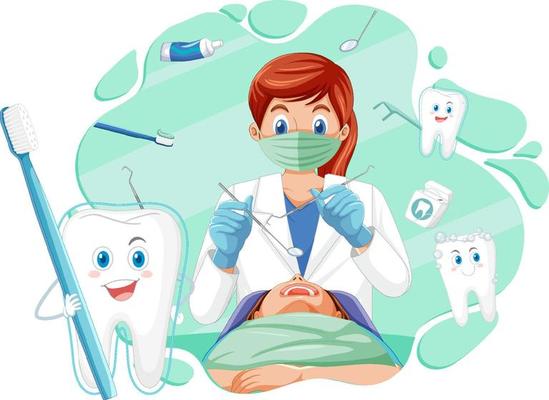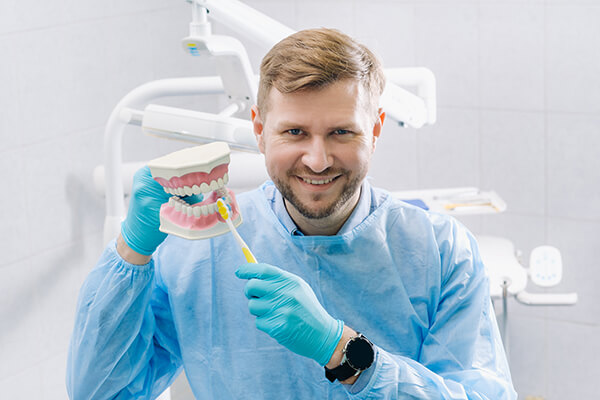Learn More About Regular Oral Worries Your Dental Professional Can Settle
Recognizing regular oral concerns is essential for keeping optimal dental health. Concerns such as dental caries, periodontal illness, tooth sensitivity, halitosis, and dental cavity are typical yet frequently neglected till they come to be severe. Dentists possess the competence to detect and deal with these conditions, thereby preventing more difficulties. Routine dental sees and personalized care plans can deal with these issues effectively, making sure a much healthier and brighter smile. Yet what certain therapies do dentists utilize to combat these concerns, and how can early treatment make a difference? The response to these inquiries offer important understandings into securing your oral wellness.
Cavities
Dental caries, also referred to as tooth decays, are a widespread dental health problem caused by the demineralization of tooth enamel because of acid manufacturing from microbial plaque. This procedure starts when bacteria in the mouth metabolize sugars and starches from food, producing acids that deteriorate the enamel. Otherwise resolved quickly, this disintegration can permeate deeper into the tooth, influencing the dentin and ultimately the pulp, possibly causing serious discomfort and infection.
The onset of cavity development typically present as white places on the tooth surface, showing initial demineralization. As the procedure proceeds, these spots can develop into black or brownish sores, signifying more extensive decay. Normal dental examinations are critical for early detection, as dental caries in their incipient phases can be treated with remineralization techniques, such as fluoride therapies.
Dental practitioners usually remove the corroded section of the tooth and fill the cavity with products such as composite resin, amalgam, or ceramic. Preventative measures, consisting of excellent oral hygiene techniques and nutritional alterations, play a critical role in mitigating the danger of dental caries.
Gum Disease
While cavities stand for a significant worry for oral health, one more vital issue that requires attention is gum tissue condition. Understood as gum illness, periodontal disease is an inflammatory problem affecting the tissues surrounding and supporting the teeth. It is largely triggered by the build-up of plaque-- a sticky film of germs that bases on teeth.
Gum condition proceeds through stages, beginning with gingivitis, identified by soreness, swelling, and hemorrhaging gum tissues (dentist eugene oregon). If left without treatment, gingivitis can intensify to periodontitis, where the internal layer of the gum tissue and bone retreat from the teeth, forming pockets that come to be infected. In time, the contaminants generated by the bacteria break down the bone and connective tissue that hold teeth in position, possibly bring about missing teeth
Very early discovery and therapy are critical. Specialist dental cleansings and boosted dental health techniques, such as brushing twice daily and flossing, can manage gingivitis. For more innovative stages, therapies may include scaling and root planing, anti-biotics, and even surgical treatments.
Regular dental examinations play an essential role in managing and protecting against gum tissue condition. Dentists can identify very early indicators and recommend ideal treatments, making certain the maintenance of healthy gum tissues and total dental health.
Tooth Sensitivity
Tooth level of sensitivity affects millions of individuals worldwide, offering an usual yet typically distressing dental concern. This condition emerges when the enamel, the outermost protective layer of the teeth, is jeopardized, disclosing the underlying dentin. The dentin includes tiny tubules that lead directly to the dental pulp, where nerves live. When exposed to stimuli such as warm, cold, pleasant, or acidic materials, these nerves are set off, causing sharp pain or discomfort.
A number of aspects add to enamel disintegration and subsequent tooth sensitivity, including hostile brushing, acidic foods and drinks, gum economic downturn, and bruxism (teeth grinding) Furthermore, dental procedures such as teeth bleaching can briefly enhance sensitivity.
Foul Breath
One more widespread oral worry that affects people' view it now daily lives misbehaves breath, medically described bad breath. This condition can be particularly stressful, impacting personal interactions and link self-confidence. Bad breath often originates from inadequate dental hygiene, which allows food fragments to stay in the mouth, promoting bacterial development. These microorganisms create sulfur compounds, leading to unpleasant odors.

Dental professionals play an important duty in detecting and dealing with halitosis. They can determine the origin with a detailed assessment and give customized advice and therapy strategies. Referrals might entail boosting oral health practices, such as routine cleaning and flossing, making use of antibacterial mouth washes, staying moisturized, and resolving any oral issues. In many cases, a referral to an expert may be required to take on underlying health issue adding to halitosis. Efficient administration of halitosis not only improves dental health and wellness however likewise significantly boosts top quality of life.
Dental Cavity

Protecting against dental caries includes a combination of great oral hygiene methods and routine dental exams. Cleaning teeth at the very least two times daily with fluoride tooth paste, flossing to get rid of plaque between teeth, and limiting the consumption of sugary foods and drinks are vital safety nets. Fluoride therapies, oral sealants, and expert cleanings supplied by a dentist can also play a significant function in fortifying enamel and avoiding decay.
When dental cavity occurs, early intervention is key. Dentists can eliminate corroded tissue and bring back the tooth with dental fillings made from materials such as composite resin, amalgam, or porcelain. In more innovative cases, therapies like crowns, root canals, or extractions might be needed. By resolving tooth degeneration without delay, dental experts help maintain oral structure and feature, making sure long-term dental health and wellness.
Final Thought
Addressing typical dental issues such as dental caries, periodontal illness, tooth level of sensitivity, foul-smelling breath, and dental caries is critical for keeping optimal dental wellness and general well-being. Dentists possess the proficiency to detect and deal with these problems successfully, making sure tailored treatment for each patient. Routine oral exams and safety nets are crucial in identifying and handling these problems early, advertising a much healthier and more certain smile over a life time.

Tooth decay, likewise recognized as oral caries, takes place when the enamel, the outer layer of the tooth, is worn down by acids produced by bacteria in the mouth. Brushing teeth at the very least twice daily with fluoride toothpaste, flossing to eliminate plaque between teeth, and limiting the intake of sweet foods and drinks are vital precautionary actions.Attending to usual oral concerns such as cavities, periodontal condition, tooth sensitivity, poor breath, and tooth decay is crucial for keeping optimal oral wellness and overall wellness.